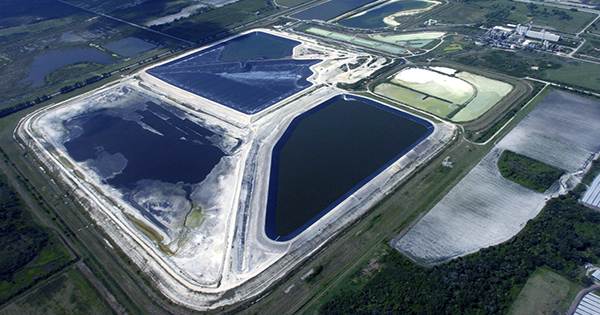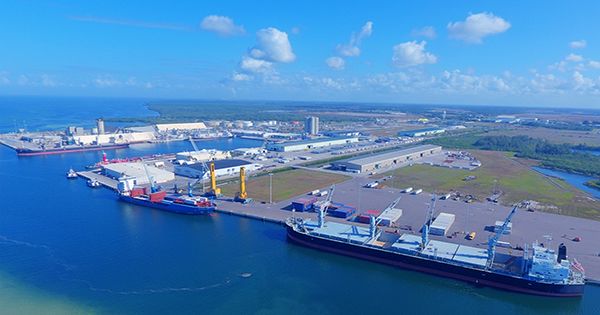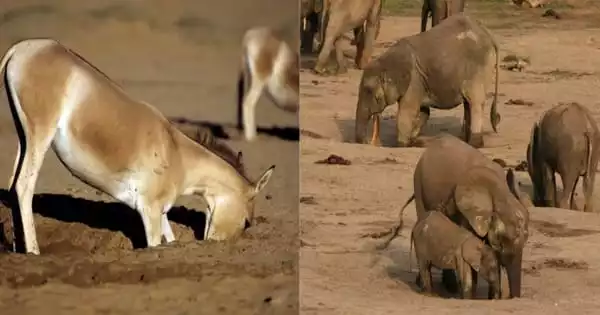A flood of contaminated wastewater rushed into the Florida environment after a reservoir leaked into an old phosphate mine.
In addition to the potential threat to public health, there are fears that it could pose a disaster for rich wildlife in and around the local area. According to the Florida Governor’s Office, on March 26, wastewater began to flow from a pond at Point Point in Manatee County, about 64 kilometers (40 miles) south of Tampa, along the Gulf Coast of Florida. This facility was formerly a plant used for phosphate processing – the main ingredient in fertilizers – and retains millions of gallons of water that have contaminated by the site’s phosphogypsum stack.
Prior to the leak, the facility had about 480 million gallons of contaminated water, but now has more than 300 million gallons. If the reservoir bursts completely, officials fear it could cause a “catastrophic flood” in the surrounding environment. On April 3, Florida Governor Ron DeSantis declared a state of emergency for Manatee, after officials warned of an “impending collapse.” Adding the reservoir, the state is now working to prevent a “real catastrophic flood situation”.

Authorities ordered the removal of more than 300 homes last weekend and the closure of a highway to allow the event to take place. “We hope it won’t happen, but we should prepare for it,” DeSantis told a news conference on April 4. DeSantis noted that about 35 million gallons of contaminated water are being pumped “through controlled discharge” into the surrounding waterways outside the reservoir to reduce the risk of a complete collapse of water collection facilities.
Sampling data prove that the water is slightly acidic mixed with salt water which is rich in nutrients like phosphorus, nitrogen and ammonia nitrogen. Water There were fears that the water could be radioactive (since phosphogypsum contains radioactive isotopes), but DeSantis said it was no longer a major concern.
Nevertheless, pouring too much nutrients into the water system can be catastrophic for freshwater and coastal marine ecosystems, as it fuels excessive plant and algal growth. In addition to depriving other lives of nutrients, it results in the flowering of harmful phytoplankton that release toxins into the water. The vast Tampa coastline is home to more than two dozen species of wildlife, including sea turtles, dolphins and manatees, as well as nests, hearts, ibis, gulls, turnips and shorebirds.
















